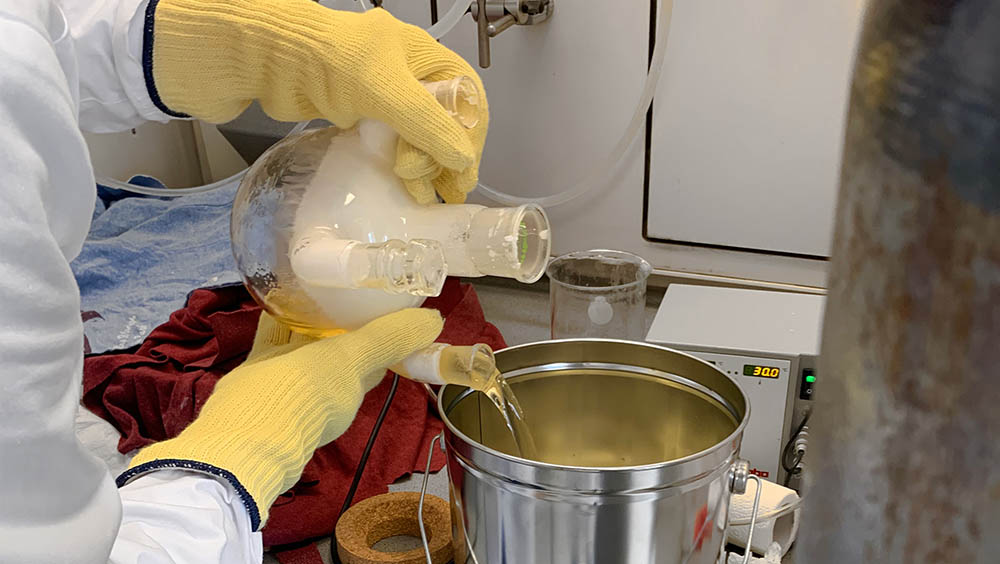Renewable raw materials: how thermoset materials can become more sustainable
Thermosets are currently in high demand again due to their numerous advantages. At the same time, they are only recyclable to a limited extent. The Plastics Center SKZ is working with industrial partners on the sustainability of thermosets and aims to develop bio-based thermosets in the BioDurInject project.

How can thermosets become more sustainable? In the BioDurInject project, the SKZ is developing bio-based thermosets from renewable raw materials. (Photo: SKZ)
The SKZ's BioDurInject project is developing bio-based thermoset molding compounds
Thermosets are used for many injection-molded products due to their various advantageous properties. The cross-linked plastics are characterized, among other things, by high durability, heat resistance, dimensional stability, good fire properties and excellent electrical insulation properties. In contrast to thermoplastics, however, recycling is limited due to the cross-linking. This is a disadvantage in view of the current trend towards more sustainable plastic products. Therefore, the use of renewable raw materials for this class of materials is particularly important, so that, for example, no additional CO₂ is released even in the event of thermal disposal.
Development of free-flowing thermoset molding compounds based on renewable raw materials
A research project of the SKZ Plastics Center in Würzburg is therefore seeking to make thermosets more environmentally friendly, starting with the materials. The project, called BioDurInject, aims to develop free-flowing thermoset molding compounds based on renewable raw materials. This applies to the matrix material, the fillers and also the fibers. The new molding compounds are to be used for the production of technical molded parts by injection molding. The molded parts produced should achieve a level of properties that corresponds to that of conventional molded parts.
Synthesizing seven different bio-based unsaturated polyesters (UP) to date
As part of this project, SKZ has synthesized seven different bio-based unsaturated polyesters (UP) on a laboratory scale using polycondensation based on renewable raw materials. For this purpose, a condensation apparatus was set up in the chemical laboratory and a suitable experimental methodology was developed. The institute's researchers obtained a viscous, yellowish liquid as a condensation product at 190 °C, which crystallizes completely at room temperature. This has already been analytically characterized using DSC. The tendency to recrystallize was examined in the drying cabinet by melting and then supercooling.
Industrial applicability for industry
Once the basic properties had been clarified, the scientists were able to start initial trials with regard to practical application. At SKZ, the aim is to always keep the real industrial applicability in mind. Thus, the new UP resins were compounded with renewable fillers and fibers as well as a thermal initiator at 100 °C to 120 °C in the measuring kneader to examine the wetting behavior of the melts and the thermal processing window. At the same time, starting formulations for the compounds are currently being developed. Three of the first eleven compounds have already been cured at 155 °C using a plate press – a temperature that is also commonly used in industrial thermoset injection molding.
Initial results are encouraging
“We hope to be able to prove that bio-based thermosets can be used as a genuine alternative to conventional ones. The current results make us very confident about future applicability on an industrial scale,” explains Johannes Rudloff, Head of Materials, Compounding and Extrusion at SKZ. “In this project, too, the active participation and support of industrial partners such as Süd-West-Chemie GmbH and Baumgarten automotive technics GmbH is fundamental to developing truly practical solutions, for which we would like to express our sincere thanks at this point.”
Further information about the research area of materials, compounding and extrusion
Further information about Süd-West-Chemie GmbH
Further information about Baumgarten automotive technics GmbH


